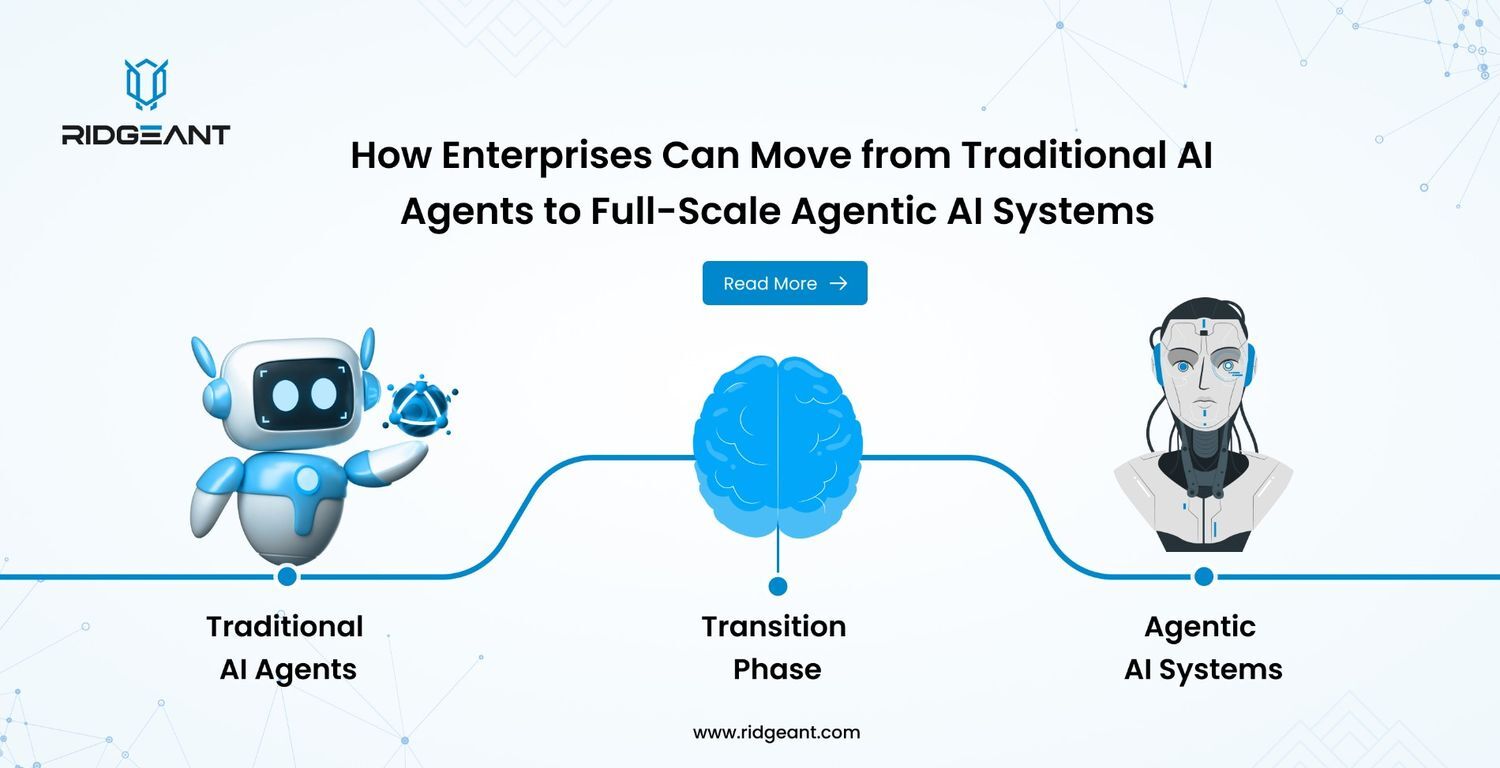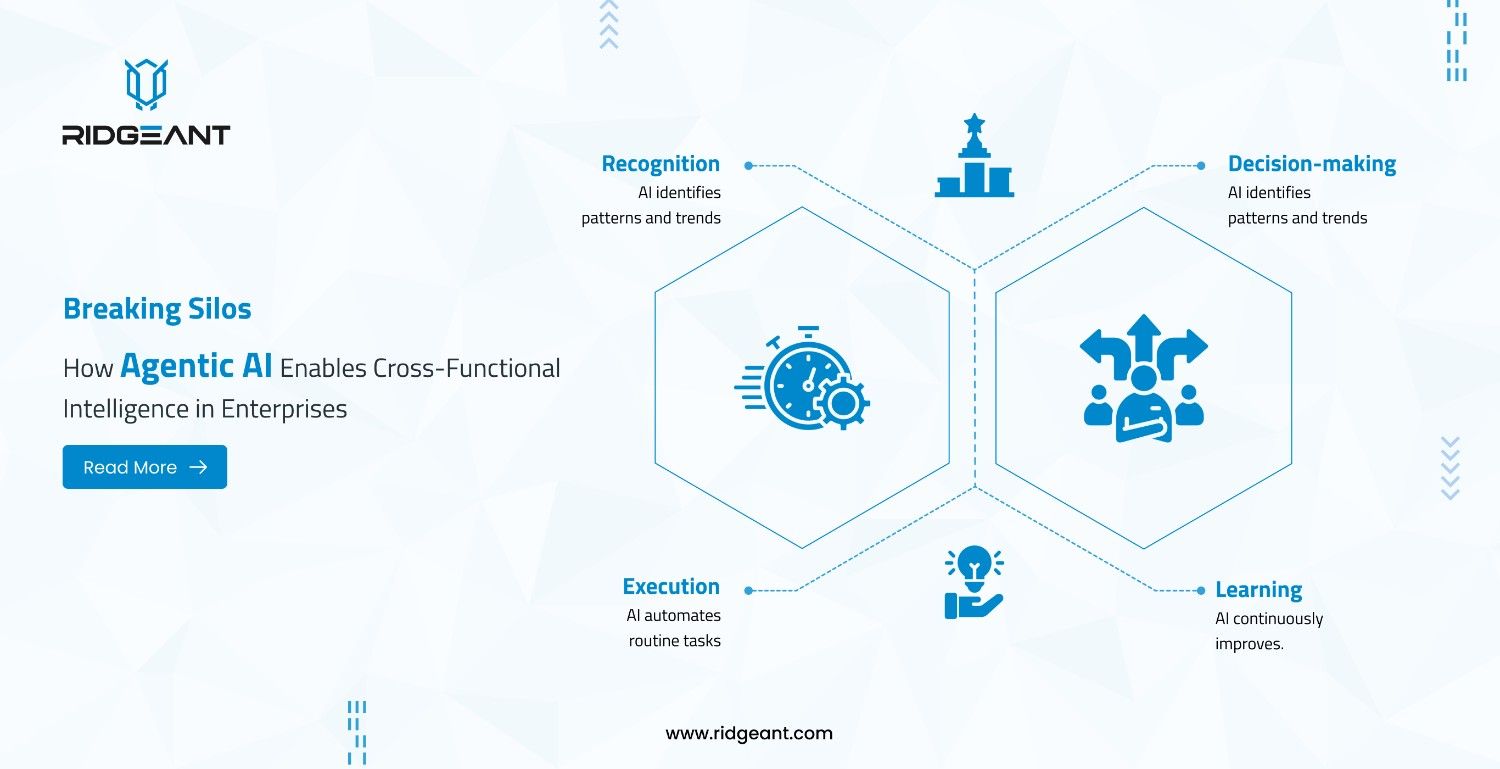
Generative AI in Supply Chain Management – Garnering Optimistic Returns
- ML and AI, Generative AI, Artificial Intelligence
- January 16, 2024
- Ridgeant

“Generative AI is the most powerful tool for creativity that has ever been created. It has the potential to unleash a new era of human innovation.” ~Elon Musk
Supply Chain and Logistics management reign as one of the most critical segments of any economy. Supply chain management is crucial in enhancing business profitability, lessening waste, increasing economic growth, and optimizing returns.
Being one of the most in-demand domains, it does face many challenges – increasing client expectations, managing risks, balancing costs, and improving efficiency, to name a few. As technology widens its horizons and the world of Artificial intelligence broadens, Generative AI has created newer avenues to bring out the best.
Generative AI for the supply chain industry has resulted in finer inventory management, smarter manufacturing operations, increased efficacy, analysis of huge volumes of historical data, and complete control. There are challenges associated with it, but then that is part and parcel of embracing any creative technology.
According to Statista, the market size in the Generative AI market is projected to reach US$66.62bn in 2024. The market size is expected to show an annual growth rate (CAGR 2024-2030) of 20.80%, resulting in a market volume of US$207.00bn by 2030.
This article explores Generative AI and the different ways in which Generative AI can transform the supply chain segment, offering a multitude of advantages, in its kitty.
An Interesting Read: Enterprise Generative AI – A Bright Future Ahead
Generative AI and Its Key Features
Generative AI is a leading digital technology that is considered a subset of AI. It generates data, content, and other information through deep learning models. Generative AI holds the competence to design insights dependent on the patterns generated from data. Hence, it is one of the key tools for complex business domains like supply chain and logistics.
Gen AI executes through model training on different datasets, making them make decisions. It keeps growing based on the data and patterns generated. It continuously observes the altered conditions and hence offers precise results with the supply chain data like inventory records, logistics data, sales history, etc. It offers a variety of outputs, such as demand forecasting reports, route maps, inventory, stocking details, etc.
Some of the salient advantages that Gen AI can produce, especially for the supply chain and logistics industry, are:
- Enhanced demand forecasting and customer service
- Lessened operational costs, labor costs, and wastage
- Timely deliveries with better quality products
- More productivity and efficacy levels
- Detailed risk analysis and management
- Better compliance with regulations and standards
- Increased scalability and streamlining of operations
Major Steps for Optimizing Generative AI in Supply Chain Management
- Set a group of goals you wish to achieve by integrating data analytics and AI in supply chain logistics.
- Consolidate and accumulate data from disparate sources based on different parameters like sales data, inventory records, client information, etc.
- Select the apt AI algorithm that can adhere to the needed challenges of supply chain management. Certain methods that can be used are clustering, regression, classification, or deep learning methods.
- Select the ideal AI technology and set of tools that are in sync with your organizational goals and data. It could include different technologies like NLP, RPA, computer vision, etc.
- Model data based on the correct mix of ML algorithms and ensure that the data is prepared in the right way.
- Perform seamless integration with other systems that play an important role in supply chain operations.
- Test the created AI models and integrate the system well through detailed testing methodologies. Perform pilot testing on a small level first before implementing it on a large scale.
- Measure and monitor the progress of how Generative AI is transforming the supply chain industry.
Key Use Cases – How is Generative AI Revolutionizing Supply Chain Management?
Witnessing the below use cases work for themselves in a never seen before avatar is proof enough that Gen AI has been influencing supply chain operations in a big way:
- Create supply chain systems with Gen AI that can effectively monitor stock levels, manage inventory in real-time, predict demand fluctuations, automate reorder processes, and lessen the risk of excessive storage.
- Empower decision-making for dynamic pricing approaches by getting an insight into market trends, client behavior, competitor pricing and, thereby, generate maximum revenue and getting optimal results
- Generate environment-friendly supply chains that can help companies stay committed to their CSR goals and their responsibilities of working in a green way.
- Create models that can offer a great deal of historical information for better demand forecasting and manage inventory in a better manner with proper resource allocation
- Leverage a variety of information, like fuel prices, weather forecasts, and traffic conditions, to offer the best possible options for different supply chain transactions.
- Identify unusual behavior, malicious activities, and deviations by studying patterns, analyzing trends, and looking at disparate data systems.
- Integrate data seamlessly from departments – sales, production, marketing, and distribution to create better business workflows and plans for better organizational alignment of goals.
- Optimize routes and create better transportation plans to generate better sales efficacy and save on time and effort.
- Determine ideal procurement strategies with the help of Gen AI and pricing trends, performance of suppliers, economic indicators etc.
- Simulate supply chain scenarios for having an idea about how the system will work and thereby perceive forthcoming hurdles and vulnerabilities.
- Create contingency plans by studying risks and anticipating forthcoming risks for better risk planning and assessment.
- Reduce wastage and overstocking by ascertaining balanced utilization of resources and saving on costs.
- Customize products, personalize information, and generate tailored output by focussing on client needs and preferences.
- Avail recommendations from IoT-generated real-time insights that can help in the timely maintenance of vehicles and avoid any type of performance issues
A Good Read: Crafting Perfection with AI Resume Parser
As We Wind Up
The latest technology mantra, Generative AI, has been revolutionizing supply chain operations by streamlining routine business workflows and extracting the most valued information out of them. And this is just a start.
The year that has just begun will be showing newer trends in Generative AI, such as enhanced predictive analytics, faster deliveries with drones and autonomous vehicles, reduced costs, increased productivity with AI-led robotics, and much more. These trends are sure to keep supply chain organizations a step ahead of the rest.
Yes, there could be associated challenges, such as data quality and accessibility, infrastructure, vendor collaboration, post-implementation issues, integration with third-party systems, and the human factor. But technology is powerful enough to come up with solutions that can address these hurdles.
As your enthusiastic AI partner, we @ Ridgeant empower businesses with next-level Generative AI Development. We offer solutions and services related to Gen AI consulting and strategy, model integration and deployment, fine-tuning models, custom Gen AI solutions, AI model development, and model replication.
Gen AI’s transformative potential rewrites strategies, businesses, and outcomes across segments, conducting businesses toward a future of innovation. We utilize contemporary technologies, mingled with robust cloud infrastructure, to deliver advanced Generative AI services.
Ridgeant’s well-designed AI model development lifecycle comprehends important stages, starting from recognizing use cases to creating the model, and deployment.
Associate with us to have a wonderful experience in Generative AI development services and solutions.














